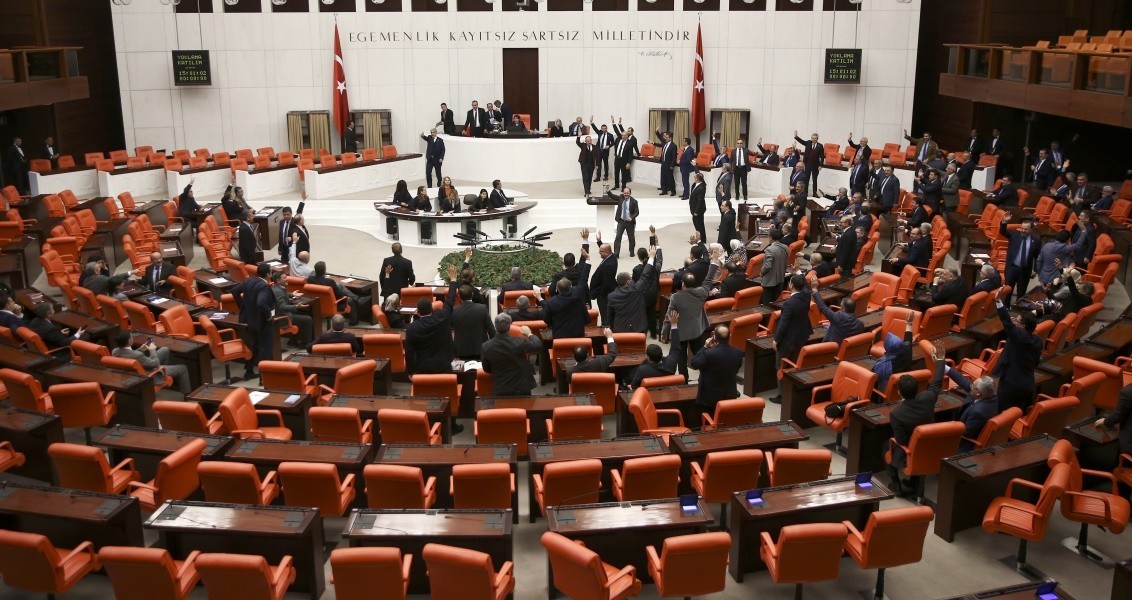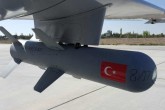Parliament has passed the second round of voting on the constitutional reform bill best known for introducing an executive presidency, which means Turkey will hold a constitutional referendum in the coming months.
At this time, the public debate on constitutional reform is dominated by one question: Whether the bill aims to reform Turkey’s system of government or to facilitate regime change. While proponents argue that the proposed changes will address the problem of double legitimacy and strengthen elected officials at the expense of the bureaucracy, critics claim that Parliament could end up transferring its powers to a single individual. Ironically, both sides are telling voters that they are trying to do the same thing: Defend Turkey’s future.
All sides of the arguments maintain that Turkey is going through challenging times and that the country’s future is at risk. If you believe the Republican People’s Party (CHP) leadership, constitutional reform will lead to a single-party regime and dictatorship – a disaster. The Justice and Development Party (AK Party) and the Nationalist Movement Party (MHP), which sponsored the bill, respond by reminding critics of the threats against Turkey’s national security – from the PKK to Daesh and the Gülenist Terror Group (FETÖ) to failed states next door – and making the case that Turkey’s political institutions need to be consolidated.
Having harshly criticized President Recep Tayyip Erdoğan on the campaign trail in 2015, MHP Chairman Devlet Bahçeli called on the ruling party to formalize the executive presidency, which he called “a practical reality,” due to the same reasons. The July 15 coup attempt, in particular, marked the end of party politics for him.
Mr. Bahçeli has been more critical of the main opposition party’s efforts to filibuster the parliamentary debate than the AK Party itself. Tensions have reached such heights that the MHP leader accused the CHP of “collaborating with an alliance of chaos to block the path to [the referendum] and render it unusable” – which should seriously worry the CHP. After all, the MHP’s nationalist credentials could have a serious impact on the CHP base. That is why CHP Chairman Kemal Kılıçdaroğlu asked to meet Mr. Bahçeli.
According to media reports, Mr. Bahçeli criticized his counterpart, saying that the main opposition had refused to act responsibly. To make matters worse, Mr. Kılıçdaroğlu’s recent statements – he claimed that the July 15 coup attempt took place under the government’s control – is unlikely to delegitimize the constitutional reform package. If anything, speculations of this nature push the CHP away from the mainstream. Over the next few months, the AK Party and the MHP will presumably consolidate their base (65-70 percent of all voters), whereas the CHP, in cooperation with the Peoples’ Democratic Party (HDP), could find it difficult to hold onto the rest – mainly because a lot of traditional Republicans are deeply unhappy about their party’s cooperation with the Kurdish nationalists.
Another interesting aspect of the constitutional reform debate is that both proponents and critics refer to change and the status quo in their arguments. In this sense, some liberals argue that the AK Party’s cooperation with the MHP over national security marks a victory for the status quo – even though their argument does not make sense because even some Kurds are frustrated with the PKK’s activities in Syria and the organization’s decision to walk out of disarmament talks in 2015. In contrast, the AK Party and the MHP want to reform the system of government in an effort to neutralize threats.
The Trump presidency will have major effects on Washington’s relations with Europe, Russia and China as well as Turkey’s neighborhood. One way or another, people around the globe are looking for stronger states at a time of growing uncertainty. Under the circumstances, whether the AK Party embraced the MHP’s views or won over the MHP leadership by fighting terrorism is an immaterial question.
[Daily Sabah, January 31, 2017]
In this article
- Domestic Policy
- Opinion
- 2015
- 2017
- China
- DAESH
- Daily Sabah
- Donald Trump
- Europe
- Executive Presidency
- Fethullah Gülen
- Fethullah Terrorist Organization (FETÖ)
- Gulen Community
- Gülen Movement
- Gülenist Terror Group
- Gülenist Terror Organization
- Hizmet Movement
- Kurdish Nationalism
- Kurdistan Workers' Party Terrorist Organization (PKK)
- Middle East
- Opposition
- PKK - YPG - SDF - PYD - YPJ - SDG - HBDH - HPG - KCK - PJAK - TAK - YBŞ
- Presidency
- Recep Tayyip Erdoğan
- Russia
- Syria
- Syrian Civil War
- Syrian Conflict
- Syrian Crisis
- Terror
- Terrorism
- The President of the Republic of Türkiye
- Turkish President
- Türkiye
- Türkiye's Justice and Development Party | AK Party (AK Parti)
- Türkiye's Peoples' Democratic Party (HDP)
- Türkiye's Republican People's Party (CHP)
- Türkiye's Republican People’s Party (CHP) Chairperson
- Türkiye’s Nationalist Movement Party (MHP)
- Türkiye’s Nationalist Movement Party (MHP) Chairperson



